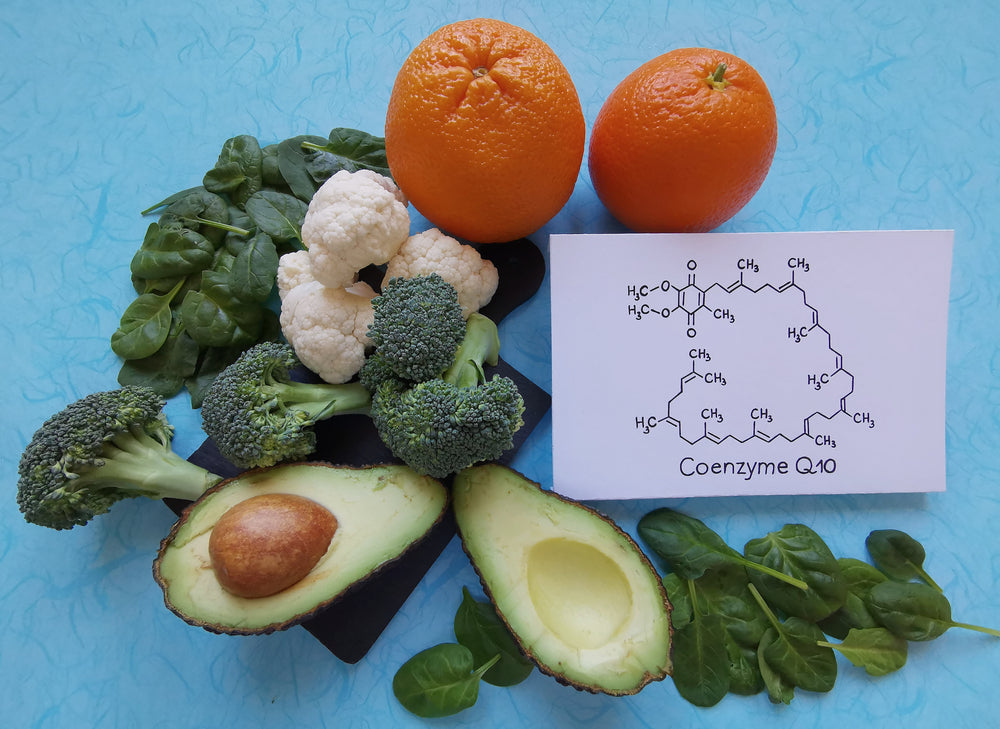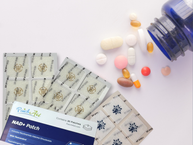The human body's complex machinery relies on countless small yet significant cogs for smooth operation. One such important cog is Coenzyme Q10 or CoQ10, a naturally occurring antioxidant in the body, tasked with energy production and several other crucial functions. Our body can naturally produce this compound, delineating it from being categorized as a vitamin. Still, it bears similarities to vitamins in terms of its health contributions. Dive into the detailed insights about CoQ10's health benefits, possible side effects, and what a CoQ10 Vitamin Patch might mean for you, on consultation with your healthcare provider.
Coenzyme Q10's Functions in Our Body
Primarily, CoQ10 is involved in metabolizing fats and carbohydrates into energy within the cellular powerhouses - the mitochondria.
CoQ10 also helps maintain optimal cellular pH levels vital for proper waste transportation across lysosomal membranes, playing a role in cellular waste removal.
Another pivotal function of CoQ10 is its antioxidant properties, which are crucial for shielding cell membranes and lipoproteins from oxidative damage. Further, CoQ10 facilitates the reuse of antioxidants like vitamins E and C.
Positive Impacts of CoQ10 on Heart Health
CoQ10's association with heart health is well-documented. Lower levels of CoQ10 in the blood have been linked to heart disease, especially congestive heart failure, when the heart fails to pump enough blood or receive ample oxygen. Raising CoQ10 levels may better the outcomes in such scenarios and aid heart recovery post-surgeries like coronary artery bypass graft surgery.
In patients with diabetes or coronary heart disease, CoQ10 seems to promote improved blood vessel and blood flow functions, reducing heart disease risk.
Potential Defense Against Statins' Side Effects
Statins are cholesterol-regulating drugs whose side effects include muscle pain and insulin resistance, possibly linked to low levels of CoQ10. Monitoring and maintaining optimal CoQ10 levels might mitigate these negative impacts.
CoQ10's Role in Maintaining Fertility
Fertility in women post their prime reproductive age can drop precipitously, partly linked to a CoQ10 deficiency. Supplementing CoQ10 might maintain egg quality and fertility. Similarly, CoQ10 may preserve sperm quality in men, further enhancing fertility.
CoQ10's Potential Influence on Athletic Performance and Cardiovascular Health
The correlation between CoQ10 and athletic performance hinges on its antioxidative and potential anti-inflammatory properties, which might aid in quicker recovery post strenuous workouts by reducing muscle damage and accelerating muscle repair.
Moreover, by preventing oxidation of LDL (low-density lipoproteins) and reducing immune cells' migration to oxidized LDL areas, CoQ10 might combat atherosclerosis, a condition where arterial walls harden, leading to stroke or heart attack risk.
Possible Role of CoQ10 in Mitigating Migraines
Deficient levels of CoQ10 might be a trigger for migraines. Thus, maintaining appropriate CoQ10 levels might reduce their incidence or severity.
Coenzyme Q10 Patches and Their Varieties
Using Coenzyme Q10 (CoQ10) in the patch form mitigates potential digestive-related side effects often associated with CoQ10 intake, such as nausea, abdominal pain, or diarrhea.
One such product is the PatchAid CoQ10 Plus Patch, encapsulating 100mg of CoQ10 as ubiquinone. Along with CoQ10, the patch incorporates Vitamin C, a notable antioxidant that regenerates with CoQ10. Supporting antioxidant functions and aiding wound healing is zinc, an additional ingredient in this patch. Moreover, the patch encompasses other antioxidants – resveratrol and astaxanthin.*
There are variations of PatchAid Vitamin Patches with CoQ10, such as:
Anti-Aging Complete Topical Vitamin Patch: Incorporates CoQ10 within an Anti-Aging Blend that also comprises omega fatty acids and trans-resveratrol. This patch retains other useful antioxidants – Vitamin C, E, A, and selenium. Other ingredients include B vitamins and Vitamin D that are critical for normal metabolic activity, energetic output, and blood cell functionality.
Glutathione Plus Patch: Contains 50 mg of CoQ10. Glutathione, a key cellular compound in this patch, helps your body manage waste products. Also known for its antioxidant properties, this patch includes alpha lipoic acid, n-acetyl cysteine, selenium, and more.
Omega-3 Vitamin Patch: Packs 200 mg of CoQ10 as ubiquinol, essential Omega-3 fats such as EPA, DHA, and ALA, and phosphatidylcholine for robust cellular membranes, along with the antioxidant astaxanthin.
Migraine Relief Patch: Migraines can be debilitating, but this patch comes with 150 mg of CoQ10 and essential vitamins and minerals, including Vitamin C, B vitamins, and magnesium. Herbal ingredients like Ashwagandha, feverfew, and butterbur extracts are also present in this patch.
Using PatchAid vitamin patches is straightforward. Apply them onto clean, dry skin and let it sit for 8 hours before discarding. The patches are designed with users' convenience in mind – they can be used irrespective of having a full or empty stomach. As per your healthcare provider's recommendation, you could use multiple PatchAid patches concurrently.
*These statements haven't been scrutinized by the Food and Drug Administration. PatchAid patches are not structured to diagnose, treat, cure, or thwart any diseases. Those with any medical conditions should consult a licensed medical expert. Individual outcomes may differ.







